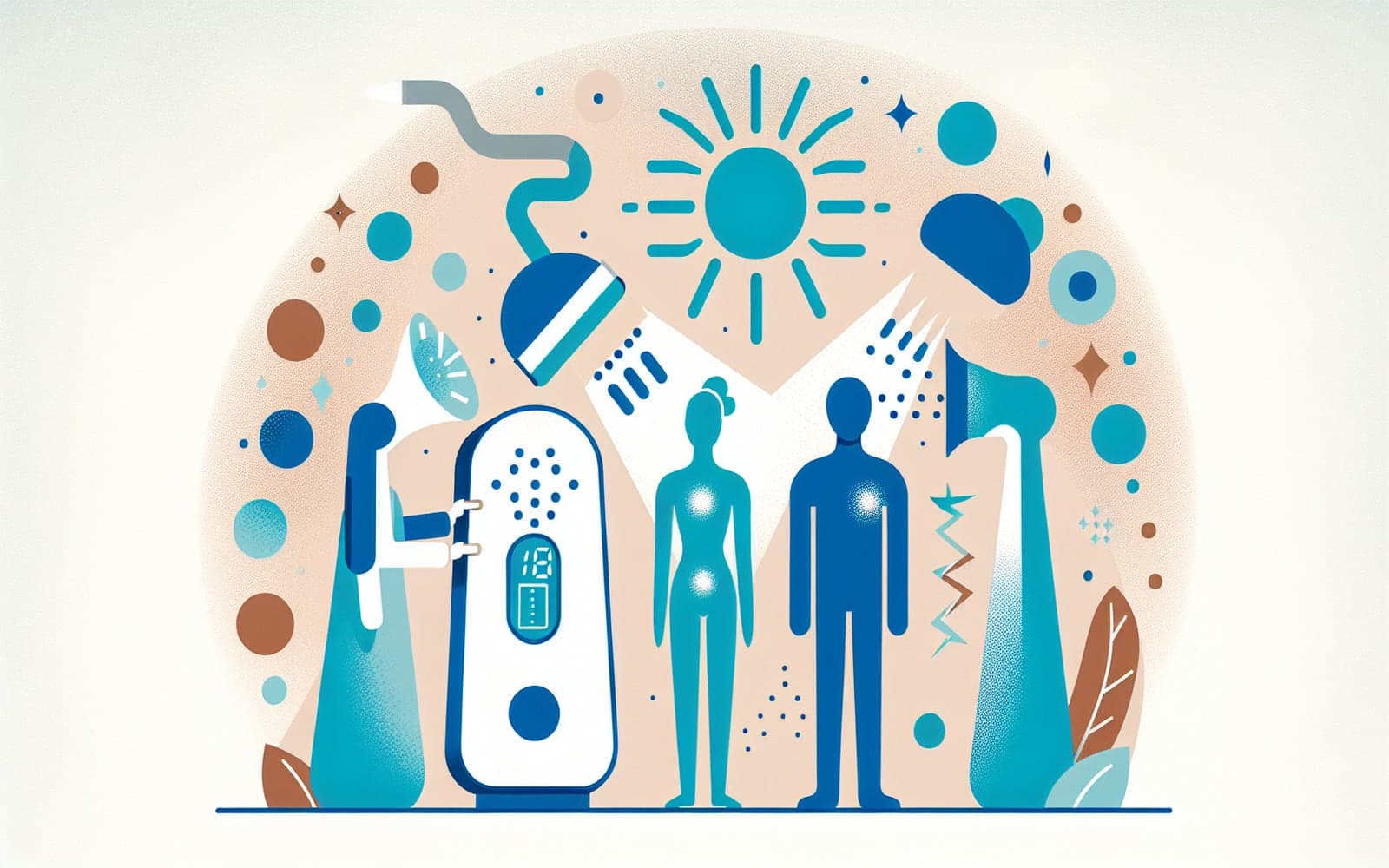Heat Devices for Acne: Hot New Treatment or Just Hot Air?
Published: Feb 27, 2024
Could the secret to clear skin be as simple as applying heat? Some new devices claim to zap pimples with a quick burst of warmth. But do they really work?
Contents
How Heat Fights Acne
Heat-based acne devices work on the principle that high temperatures can kill acne-causing bacteria and reduce inflammation. Some devices combine heat with light therapy for a dual approach. The idea is to provide a quick, targeted treatment for individual pimples.
Types of Heat Devices
Several heat-based acne devices are now available for home use. The ThermaClear device, approved by the FDA, delivers a short pulse of heat to the skin. Other options include Zeno and the Radiancy Clear Touch Lite, which combines heat with pulsed light. These handheld devices are designed for easy, at-home use.

Effectiveness and Limitations
While heat devices show some promise, the evidence for their effectiveness is limited. One unpublished study found that heat-treated pimples cleared faster than untreated ones. However, more research is needed to confirm these results and understand long-term effects. Heat devices are generally considered safe, but they may not be suitable for all types of acne.
Frequently Asked Questions
Follow device instructions, usually 2-3 times per day per pimple.
Generally yes, but those with sensitive skin should be cautious.
They're best used as a supplement to, not replacement for, regular acne care.
Key Takeaways
While heat devices offer a novel approach to acne treatment, they shouldn't be your only line of defense.
Wondering if heat devices could help your acne? Chat with Doctronic to explore all your treatment options.Related Articles
References
Badgwell Doherty C, et al. Thermotherapy in dermatologic infections. J Am Acad Dermatol 2010; 62:909.
Zaenglein AL, et al. Guidelines of care for the management of acne vulgaris. J Am Acad Dermatol 2016; 74:945.
Always discuss health information with your healthcare provider.

